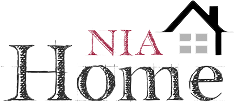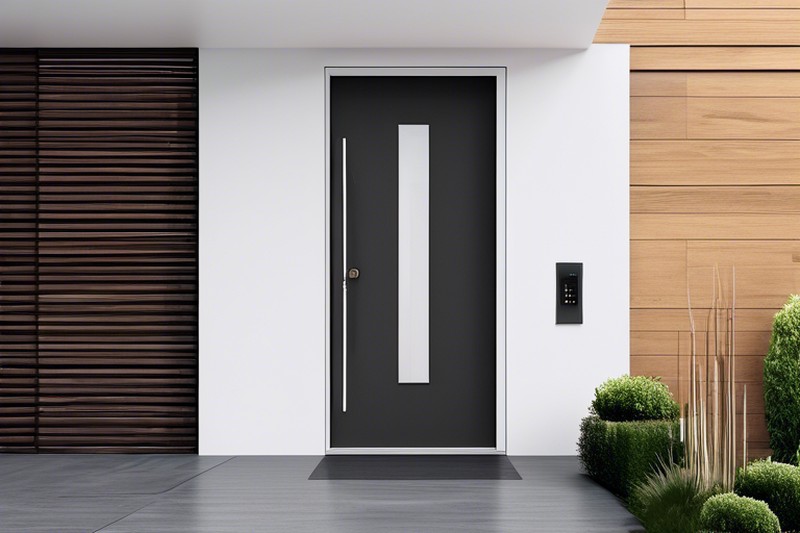Your front door is more than just an entry point into your home—it’s a statement. It sets the tone for your house’s aesthetic, plays a vital role in security, and significantly impacts energy efficiency. Whether you’re building a new home, renovating, or simply upgrading your current setup, selecting the right front door is a decision that blends function, design, and long-term value. In Sweden and many Nordic countries, the term ytterdörr—meaning “outer door” in Swedish—is commonly used to describe this essential architectural feature. In this comprehensive guide, we’ll explore everything you need to know about choosing the perfect ytterdörr, from materials and insulation to design trends and smart technology.
Why Your Ytterdörr Matters
The ytterdörr is the gateway between your private sanctuary and the outside world. It’s the first thing guests see and often the last thing you check before heading out. Beyond its symbolic importance, your front door has practical implications:
- Energy Efficiency: A high-quality ytterdörr with proper insulation can reduce heating and cooling costs by minimizing air leakage.
- Security: As the primary access point, your front door must resist forced entry and provide peace of mind.
- Curb Appeal: The design and color of your ytterdörr can dramatically enhance your home’s exterior.
- Weather Resistance: Especially in Nordic climates, your ytterdörr must withstand snow, rain, wind, and temperature fluctuations.
Given these factors, investing in a durable, stylish, and efficient ytterdörr is a smart move for any homeowner.
Materials for Your Ytterdörr: Pros and Cons
Choosing the right material is crucial for balancing aesthetics, durability, and maintenance. Here are the most popular options for a ytterdörr:
1. Wood
Wooden ytterdörrar are timeless. They offer natural beauty, warmth, and excellent insulation properties. Hardwoods like oak, mahogany, and teak are particularly popular for their strength and grain patterns.
Pros:
- Elegant and customizable finishes
- Excellent thermal insulation
- Can be painted or stained to match your home
Cons:
- Requires regular maintenance (sealing, painting)
- Susceptible to warping and rot if not properly maintained
- Higher cost compared to other materials
Wood is ideal for traditional or rustic homes, but it demands more upkeep—especially in harsh climates.
2. Steel
Steel ytterdörrar are known for their strength and security. They are often filled with insulation to improve energy efficiency and are available in a variety of styles, including wood-grain finishes.
Pros:
- Highly secure and durable
- Low maintenance
- Resistant to warping and cracking
- Affordable compared to wood or fiberglass
Cons:
- Can dent if struck hard
- Less insulation than wood or fiberglass unless properly filled
- May rust over time if the finish is damaged
Steel is a great option for homeowners prioritizing security and budget-friendliness.
3. Fiberglass
Fiberglass doors have gained popularity due to their versatility and performance. They mimic the look of wood but require far less maintenance.
Pros:
- Extremely durable and weather-resistant
- Low maintenance (no painting or sealing required)
- Excellent insulation properties
- Available in wood-grain textures and various colors
Cons:
- Can be more expensive than steel
- If the surface is damaged, repairs can be tricky
Fiberglass is an excellent middle ground between wood and steel, offering beauty and resilience.
4. Aluminum and Composite Materials
Modern ytterdörrar sometimes use aluminum frames with composite panels or insulated cores. These are common in Scandinavian architecture due to their sleek design and thermal efficiency.
Pros:
- Lightweight yet strong
- Modern, minimalist appearance
- High resistance to corrosion and weather
- Often combined with glass for a contemporary look
Cons:
- Can be more expensive
- May not provide the same warmth as wood
These materials are perfect for modern or minimalist homes and are increasingly popular in Sweden and other Nordic regions.
Design and Style: Matching Your Ytterdörr to Your Home
The design of your ytterdörr should complement your home’s architecture. Here are some popular styles:
1. Traditional
Classic designs feature paneled doors, sidelights, and transoms. Often made of wood or fiberglass, they suit colonial, Victorian, or cottage-style homes. A red or black ytterdörr with brass hardware adds timeless charm.
2. Modern/Contemporary
Clean lines, minimal ornamentation, and large glass panels define modern ytterdörrar. Black steel or aluminum frames with frosted or tinted glass create a sleek, sophisticated look. These are ideal for urban homes or minimalist Scandinavian designs.
3. Rustic/Farmhouse
For country homes, a solid wood ytterdörr with a distressed finish or plank-style design evokes warmth and authenticity. Pair it with iron hardware for a vintage feel.
4. Scandinavian Minimalism
In Sweden, the ytterdörr often reflects Nordic design principles: simplicity, functionality, and connection to nature. Light wood tones, black frames, and large windows are common. Many Swedish homes feature double ytterdörrar—an outer and inner door—for added insulation during long winters.
Energy Efficiency and Insulation
One of the most overlooked aspects of a ytterdörr is its thermal performance. A poorly insulated door can lead to heat loss, higher energy bills, and uncomfortable drafts.
Look for these features when evaluating energy efficiency:
- U-Value: This measures how well the door insulates. The lower the U-value, the better the insulation. A good ytterdörr should have a U-value of 1.0 W/m²K or lower.
- Weatherstripping: High-quality seals around the door prevent air leaks.
- Core Insulation: Doors with foam or polyurethane cores offer superior insulation.
- Double Glazing: If your ytterdörr includes glass panels, ensure they are double or triple-glazed to reduce heat transfer.
In Sweden, where winters are long and cold, energy-efficient ytterdörrar are not just a luxury—they’re a necessity. Many Swedish manufacturers specialize in thermally broken doors that prevent cold bridging, ensuring your home stays warm and cozy.
Security Features for Your Ytterdörr
Your front door is a prime target for break-ins, so security should be a top priority. Here’s how to fortify your ytterdörr:
- Reinforced Frames: Steel or composite frames resist forced entry better than wood.
- Multi-Point Locking Systems: These locks engage at multiple points along the door frame, making it harder to pry open.
- Deadbolts: A minimum of a single-cylinder deadbolt is recommended. For added security, consider a double-cylinder lock (though be mindful of fire safety).
- Peepholes and Door Viewers: Allow you to see who’s outside without opening the door.
- Smart Locks: Integrate keyless entry, remote access, and monitoring via smartphone apps. Brands like Yale and August offer smart locks compatible with most ytterdörrar.
For maximum protection, combine a sturdy door with a reinforced jamb and strike plate.
Smart Technology and the Modern Ytterdörr
The future of the ytterdörr is smart. Today’s homeowners can equip their doors with technology that enhances convenience and security:
- Smart Locks: Unlock your door with a PIN, fingerprint, or smartphone. Some systems allow you to grant temporary access to guests or service providers.
- Video Doorbells: Devices like Ring or Nest Hello let you see and speak to visitors from anywhere.
- Door Sensors: Alert you if your ytterdörr is left open or tampered with.
- Automated Lighting: Integrate your door with smart lighting that turns on when motion is detected.
These features not only improve security but also add convenience and modern flair to your home.
Choosing the Right Color for Your Ytterdörr
Color plays a big role in curb appeal. The right hue can make your front door stand out or blend in harmoniously with your home’s exterior.
Popular choices include:
- Black: Sleek and modern, perfect for contemporary homes.
- Red: A classic choice that conveys warmth and welcome.
- Navy Blue: Sophisticated and timeless.
- White or Gray: Neutral tones that work with almost any style.
- Natural Wood Stain: Highlights the grain and adds warmth.
In Sweden, black and dark gray ytterdörrar are particularly popular, offering a clean contrast against light-colored houses and snowy landscapes.
Maintenance Tips for Your Ytterdörr
To keep your ytterdörr looking great and functioning well, follow these maintenance tips:
- Wood Doors: Reapply sealant or paint every 2–3 years. Check for cracks or warping.
- Steel Doors: Inspect for dents or rust. Touch up paint as needed.
- Fiberglass Doors: Clean with mild soap and water. Avoid harsh chemicals.
- Hardware: Lubricate hinges and locks annually to prevent sticking.
- Weatherstripping: Replace if cracked or worn to maintain energy efficiency.
Regular maintenance extends the life of your ytterdörr and protects your investment.
Sustainable and Eco-Friendly Ytterdörr Options
As environmental awareness grows, many homeowners are opting for sustainable ytterdörrar. Look for:
- FSC-Certified Wood: Ensures the wood comes from responsibly managed forests.
- Recycled Materials: Some fiberglass and composite doors use recycled content.
- Low-VOC Finishes: Reduce indoor air pollution.
- Locally Sourced Doors: Reduce carbon footprint from transportation.
In Sweden, sustainability is a key factor in home design. Many ytterdörr manufacturers emphasize eco-friendly production and materials, aligning with the country’s green building standards.
Installation: DIY vs. Professional
While some homeowners attempt to install their own ytterdörr, professional installation is highly recommended. A poorly installed door can lead to:
- Air and water leaks
- Misalignment and difficulty closing
- Reduced security and insulation
Professionals ensure the door is level, properly sealed, and securely anchored. They can also help with permits and compliance with local building codes.
Cost Considerations
The price of a ytterdörr varies widely based on material, size, design, and features. Here’s a general price range:
- Steel Doors: $500–$1,200
- Fiberglass Doors: $800–$2,500
- Wood Doors: $1,000–$4,000+
- Custom/High-End Designs: $3,000–$10,000+
While the initial cost may seem high, remember that a quality ytterdörr can increase your home’s value and save money on energy bills over time.
Conclusion: Your Ytterdörr, Your First Impression
Your ytterdörr is more than just a door—it’s a reflection of your home’s character and your personal style. Whether you prefer the warmth of wood, the strength of steel, or the sleekness of fiberglass, choosing the right ytterdörr involves balancing aesthetics, performance, and budget.
In Sweden and beyond, the ytterdörr symbolizes both welcome and protection. It stands firm against the elements while inviting light and life into your home. By investing in a high-quality, energy-efficient, and secure ytterdörr, you’re not just upgrading your entrance—you’re enhancing your home’s comfort, safety, and value.
So take the time to explore your options. Consult with architects, designers, or door specialists. Consider your climate, your home’s architecture, and your lifestyle. And when you finally choose the perfect ytterdörr, you’ll know—it’s the door that feels like home.


Comments are closed.